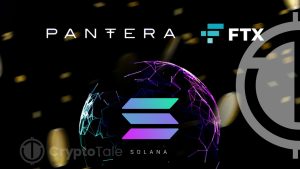
Fintech firm OpenTrade has recently announced a fundraising campaign worth $1.5 million. The company’s stablecoin rails are designed to enable faster and more cost-effective money transfers for businesses. OpenTrade asserted its technology would provide a more stable platform for these transactions. Several investors, including Sino Global Capital, Circle Ventures, and Kronos Research, have invested in the project.
The platform shared the news via Twitter:
Great piece by @fintechfrank @TheBlock__ on how we're using DeFi and #USDC together with @Circle to rewire global supply chain finance. The utility value phase of crypto is here to stay. https://t.co/Vebrwdr2v9
— OpenTrade (@opentrade_io) May 4, 2023
Banks and non-banking financial institutions have become increasingly important to the supply chain management processes of large businesses such as automobile manufacturers.
The company’s claim that most of the transactions might move to stablecoin is especially interesting:
When you combine composable DeFi infrastructure with payment stablecoin, the results can truly be game changing,” the firm said in a blog. “For one, we can begin to move trillions of dollars of trade and supply chain finance off of spread sheets and PDFs and into programmable internet native formers. In doing so, we can make them transferable, peer-to-peer, in real time.
The previous quarter was the worst in two years for blockchain finance, with only $2.7 billion being invested. It follows a peak of almost $12 billion in the first quarter of 2022.
OpenTrade was founded in January of this year and has offices in London and Palo Alto. The company connects financial institutions and B2B networks worldwide to build on-chain liquidity pools with customized investment parameters, underlying assets, and desired returns. To reduce vulnerability, a regulated custodian keeps the assets underlying each pool in separate, bankruptcy-remote accounts.
The OpenTrade liquidity pools accept USDC stablecoins and euro coin (EUROC) deposits from user wallets. In return, the user is issued an ERC-20 token representing a proportional share of the pool’s net asset value (NAV). Liquidity pool tokens can be exchanged for a fixed sum of USDC or EURC, reflecting the token holder’s proportionate share of the loan’s principal and interest.
CEO Dave Sutter and CCO Jeff Handler formerly worked at Centre, the consortium created by Circle and Coinbase to administer USDC, and are now part of OpenTrade’s founding team. Michele Bisceglia, a former partner at consulting and asset management firm AgFe, is also a part of the team.














